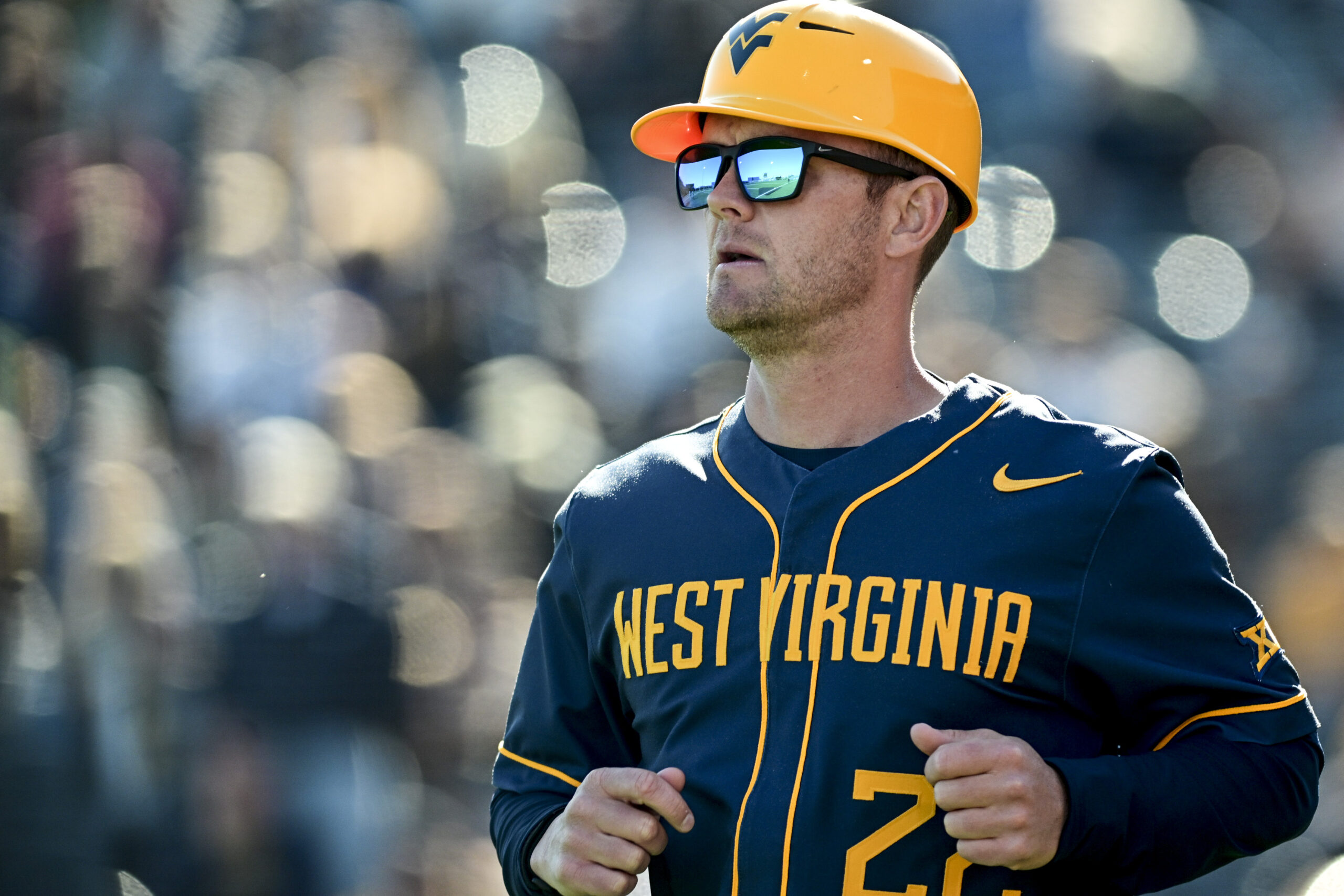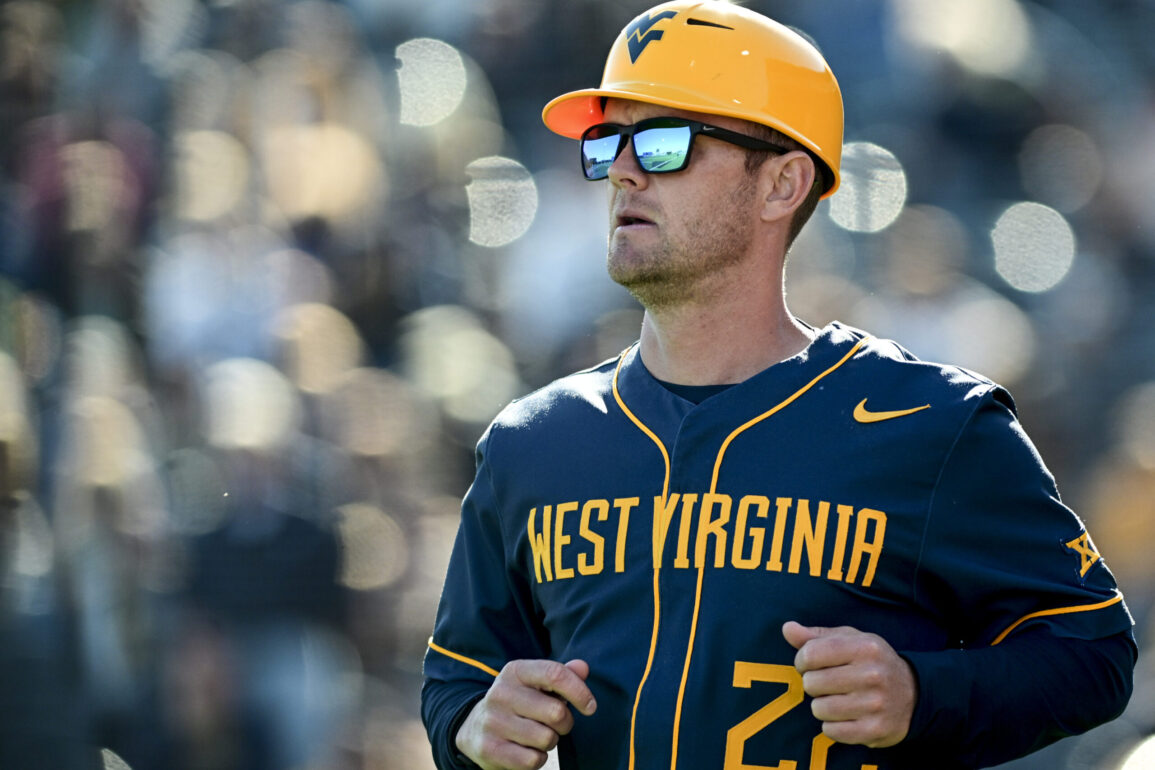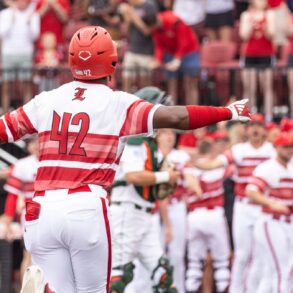
MORGANTOWN — For a moment, let’s have our minds wander and dream what may one day become a reality.
Picture the WVU baseball team hosting LSU in a super regional rather than traveling to Baton Rouge, La, as the Mountaineers (44-14) will do at 2 p.m. Saturday.
Picture the fan base’s expectations being so high that there is major disappointment if the Mountaineers don’t make it to the College World Series in Omaha, Neb. each season.
Picture two or three players each season going in the first and second rounds of the MLB draft.
Lastly, picture WVU being considered the top college baseball school in the northeast.
How does that picture look?
If your answer was “profitable,” then you really don’t know the nuts and bolts about college baseball.
But that’s OK, because very few do, so let’s discuss it today with what will be some — hopefully — eye-opening statistics and figures.
We’ll begin with this hypothetical statement: WVU truly becomes a baseball school.
To be sure, there are worse things for a university’s athletic department to be known for, but the thought of WVU being a “baseball school” likely scares the heck out of WVU athletic director Wren Baker.
Why? Because college baseball, no matter the level of success attained, doesn’t pay the bills.
College baseball teams, again, no matter how great one may be over a long period of time, barely pays its own bills.
Forget about making enough revenues on baseball to help sustain a small percentage of an athletic department’s overall budget, because it just doesn’t happen.
Example No. 1: LSU, the same school the Mountaineers will try to beat in a best-of-three series this weekend.
There may be no other school in the sport thought of as the king of the mountain more than the Tigers.
They’ve got seven national championships, all of them coming since 1991.
Alex Box Stadium has a listed capacity of 10,326, but the estimations are for closer to 12,000 in attendance on Saturday. They’ll all be buying tickets, hot dogs, nachos, beers, sodas and so on.
Yeah, that’s a lot of money.
Now, let’s dive into the actual dollar figures.
On its 2024 financial report that is turned into the NCAA every year, LSU reported a sum of $8.02 million in total revenues for its college baseball team.
Yeah, that’s a lot of money, and as a further example of what WVU is trying to catch in reaching national respectability in the sport, the Mountaineers reported $1.66 million on its report to the NCAA.
If you’re thinking David vs. Goliath now, from a financial perspective, that’s exactly what it is.
Here’s the thing, though, LSU also reported total expenses in 2024 for college baseball at $9.989 million.
That’s right, the king of the mountain lost $1.97 million in 2024.
A tad more than $3.5 million of those expenses went to simply paying LSU head coach Jay Johnson ($1.86 million), his assistants and his support staff.
If you’re at all interested, the entire WVU baseball coaching and support staff were paid a total of $1.14 million in 2024.
In its report, WVU baseball earned $1.66 million in revenues and reported $3.81 million in expenses — a loss of $2.15 million.
And that was a super-regional season — the first one ever for the Mountaineers — and with one of the program’s all-time best players, J.J. Wetherholt, in the lineup and coming off a Big 12 regular-season title the season before.
That’s quite a lot going for one college baseball team and it still lost more than two million, think about that for a second.
WVU set a school record for season-ticket sales this season.
It was nationally ranked by USA Today since the fourth week of the season. It was in contention for another Big 12 title that it eventually won outright since the beginning of conference play.
And when that 2025 report is eventually released, WVU baseball will again likely come out operating on a deficit.
Revenues will have gone up, sure. It’s likely WVU will report an all-time high in college baseball revenue in 2025, but it’s also going to report higher expenses, whether that be an expanded support staff for head coach Steve Sabins or further travel to spots like Tucson, Ariz. or Provo, Utah.
All of a sudden, being a “baseball school” or the king of the northeast in the sport doesn’t sound quite as grand.
Consider yourself lucky it doesn’t cost you a grand to dream that way.
If you’re still with me, there is an avenue for a college baseball team such as WVU to make some money.
It is an avenue that is, basically, out of the realm of possibility, though.
You’d have to expand Kendrick Family Ballpark — by a lot — as in at least double its current 3,500 listed capacity.
You’d have to put a roof on that renovated stadium in order for the Mountaineers to play more home games in February and March.
You’ll need more private suites inside the stadium, too.
And you’d have to get Ken Kendrick and a host of other donors to flip the bill for it all, because if WVU had to use its own funds, that’s no help to the school’s bottom line.
Unfortunately, WVU would also have to raise its ticket prices, too, while also keeping costs down on things such as coaching salaries and the likes.
Is all of that impossible? Not exactly, well, yeah it pretty much is.
So, let’s enjoy what may be a historic and entertaining super regional for WVU, but also know that any daydreaming of the Mountaineers becoming an elite baseball school doesn’t exactly mean what you think.
This post was originally published on this site be sure to check out more of their content.





